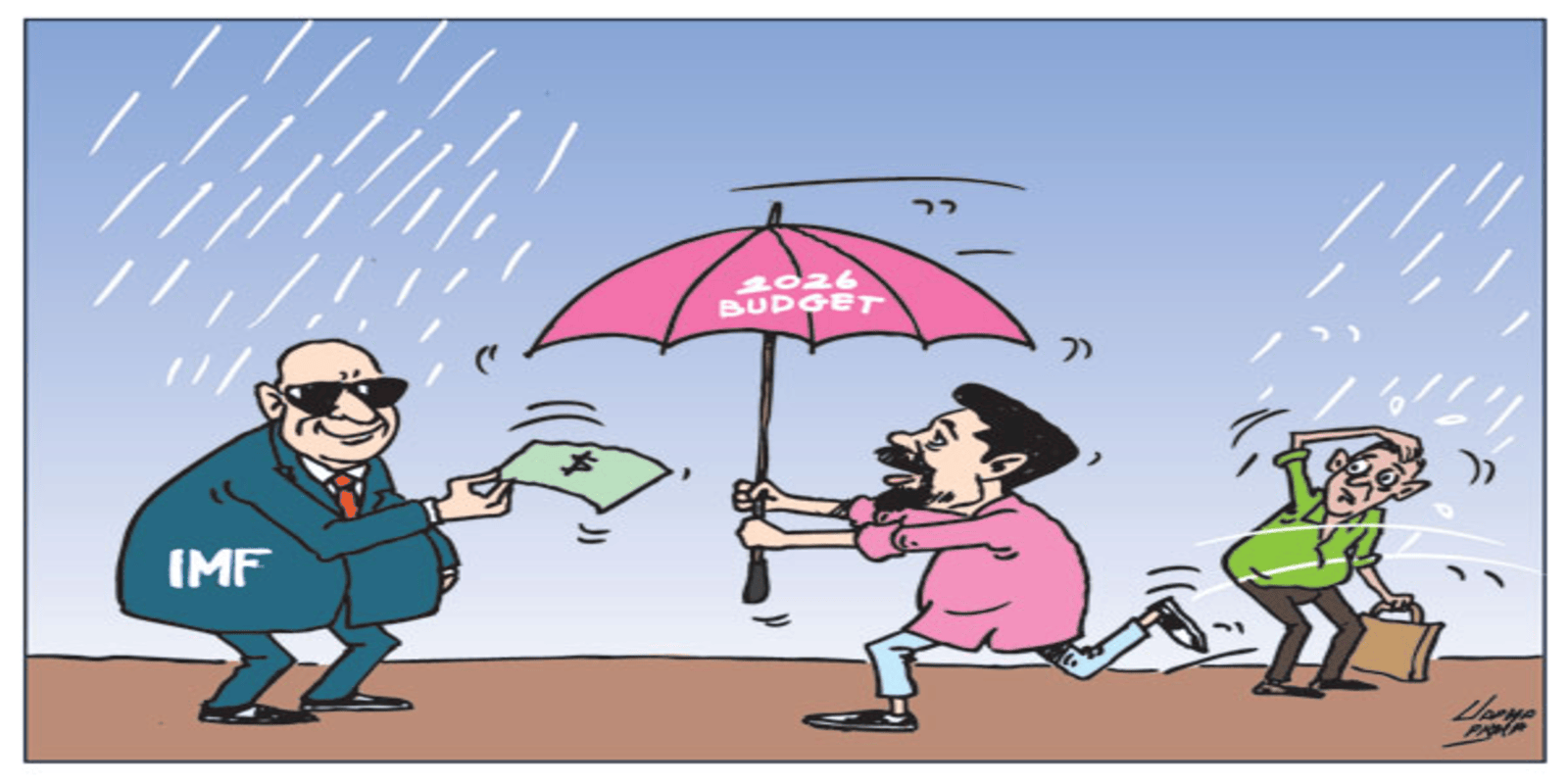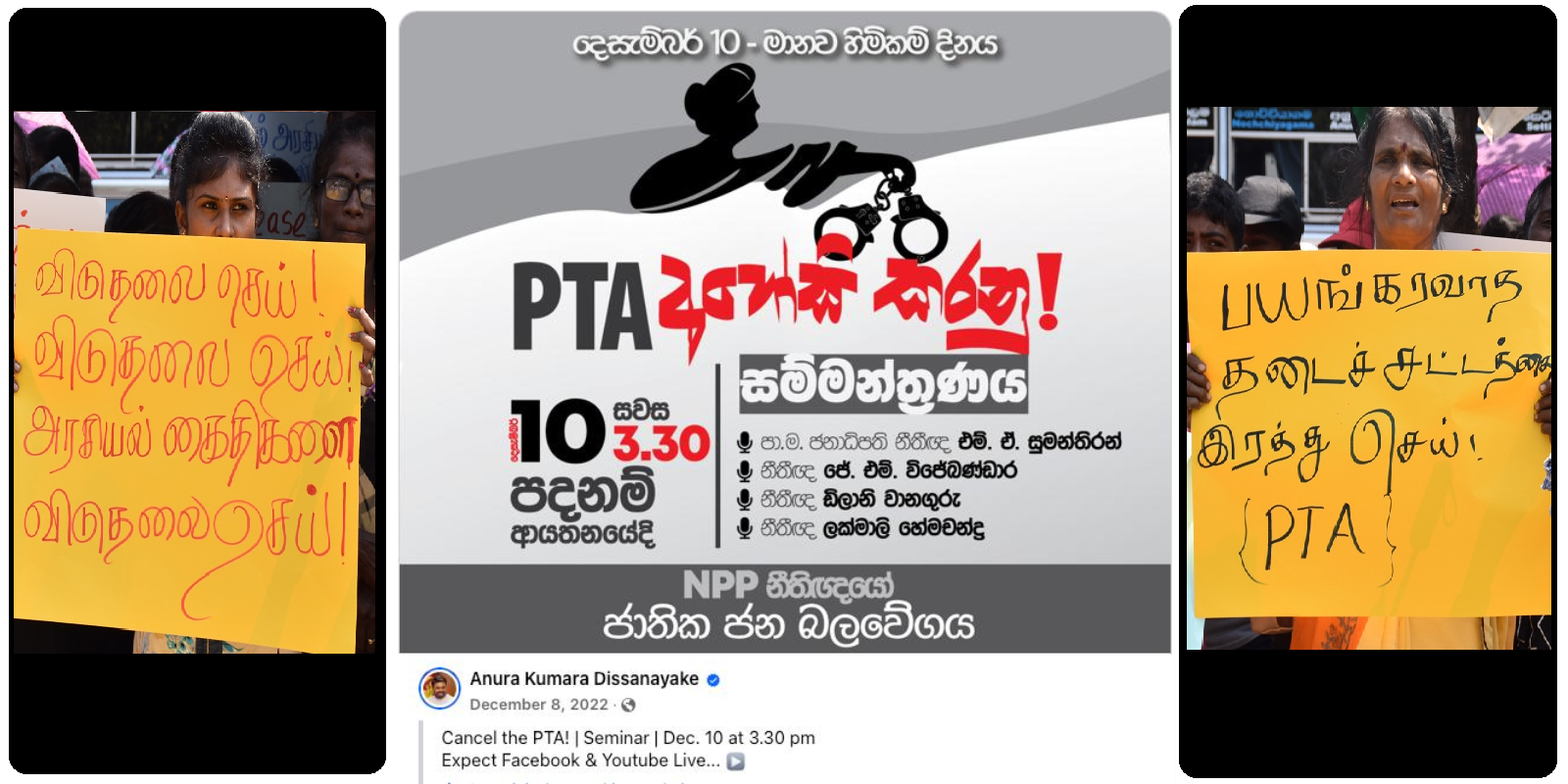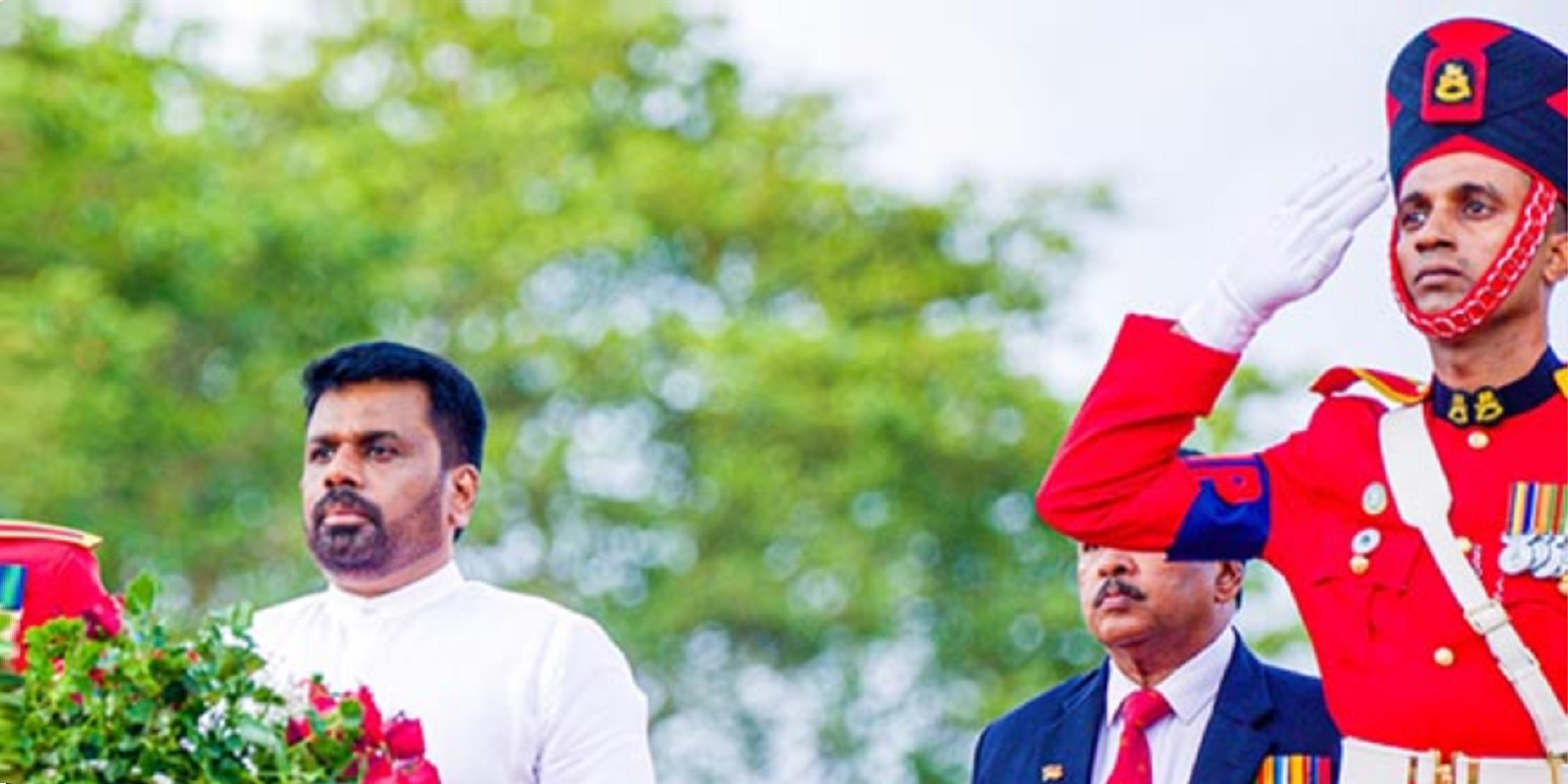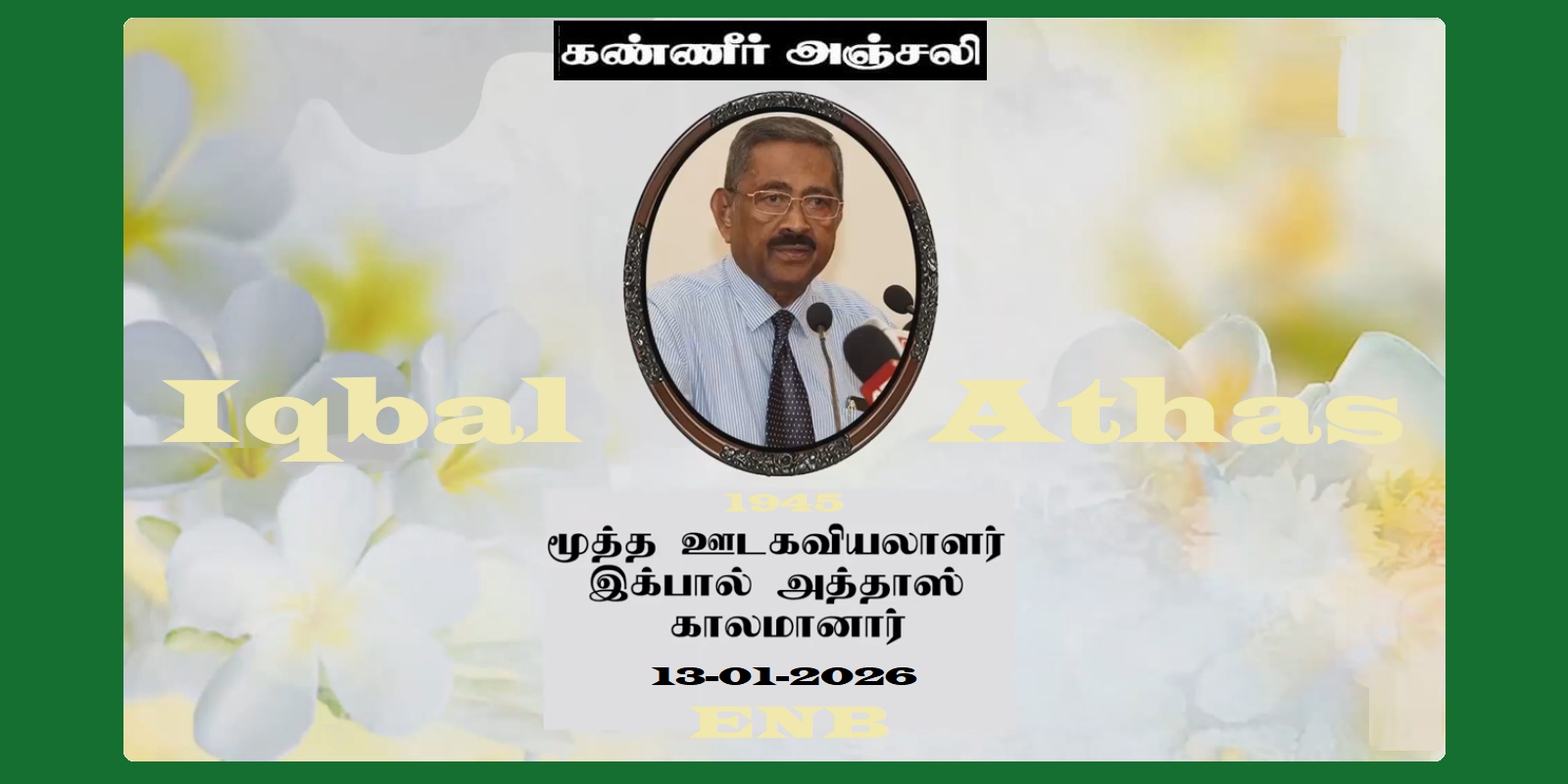The art of non-alignment
Sunday Times LK 26-10-2025
- Questions arise over JVP minister’s foreign tours as Bimal undertakes dragon-fruit visit at China’s Communist Party’s invitation
- Opposition demands debate on government’s UNHRC no-vote; Foreign Minister seeks to placate Muslim concerns
- Public Security Minister comes under SJB fire over failure to provide security to public representatives
- Minister hits back, says IRCs cannot be given police protection—sparking opposition fury
- President to launch nationwide all-out anti-drug operation with public participation
By our Political Desk Sunday Times LK
The art of non-alignment
Non-alignment has been the favoured foreign policy of successive Sri Lankan governments, at least on paper. The NPP has stuck to the same stance, stating its foreign policy vision is based on the principles of nonalignment so as to maintain a balanced approach that avoids entanglements in global power struggles.
The problem with non-alignment is that it’s not always easy to stay on the fence when there are major global engagements and there is the need for a country to take a firm stand one way or the other. The most recent case was the Palestine-Israel conflict, where many countries took a firm stand against the actions of Israel, but in this instance too, the Sri Lankan government chose to balance the situation with mild condemnations of Israeli atrocities while repeating words such as the ‘need for peace’, diplomatic language, etc.
Closer to home things are more delicate, and like all previous governments, the NPP too has the task of balancing Indian and Chinese interests on the island while also keeping the US and the European bloc happy.
On the Indian front, Prime Minister Harini Amarasuirya wound up a successful trip to India earlier this week. She was well received, and her visit was widely reported in the Indian media, which gave a boost to Indo-Lanka relations.
Days before her Indian visit, Prime Minister Amarasuriya was in Beijing to attend the “Global Leaders’ Summit” on the sidelines, for which she met with Chinese President Xi Jinping and Premier Li Qiang.
Just as Ms Amarasuriya was ending her India visit, Transport, Highways and Urban Development Minister and Sri Lanka-China Parliamentary Friendship Association chairman Bimal Rathnayake was in the Guangxi Province on a visit organised by the Communist Party of China, meeting with senior members of the CPC in the province. There he visited a plantation where dragon fruit is grown on a large scale. Apparently, the name of the fruit originated due to spikes on a dragon fruit which resemble fire, and its scales resemble the skin of a dragon as illustrated in Chinese mythology.
After the visit, the minister shared details on his official Facebook page, in which he said that he visited the Guangxi Jinshu Agricultural Company, located in a major fruit-growing region of Guangxi Province. “The company manages a cultivation area spanning 3.6 square kilometres. Within this agricultural zone, there are 10,907 households with a total population of approximately 42,675 residents who benefit from its operations. Notably, the annual income of households engaged in dragon fruit cultivation has increased nearly threefold. It was highlighted to us that such agricultural initiatives have made a significant contribution to the province’s poverty reduction efforts.”
Away from farm visits, there were the more important political discussions.
The Chinese official news agency Xinhua reported that Liu Haixing, head of the International Department of the Communist Party of China (CPC) Central Committee, met with a delegation of senior cadres from Janatha Vimukthi Peramuna (JVP) of Sri Lanka, led by its Political Bureau Member Bimal Rathnayake.
“The two sides had an in-depth exchange of views on promoting the implementation of the consensus reached by the leaders of the two countries through inter-party channels and strengthening the exchange of experience in party and state governance,” the agency said.
The visits organised for seniors in government as well as the JVP have been an ongoing process. In June, JVP General Secretary Tilvin Silva undertook a visit to China, also on the invitation of the Communist Party of China (CPC) as part of efforts to deepen relations between the Janatha Vimukthi Peramuna (JVP) and the CPC.
A senior government source said the CPC-organised tours are for JVP party cadres so they can learn more of the workings of the CCP and how it operates. Those going on such tours are members of the JVP and not the NPP, the source said.
For a government that came to power criticising too many overseas visits by previous leaders/ministers, those in the current government are giving stiff competition to their predecessors. The overseas tours are coming thick and fast, with several of the NPP members undertaking visits as part of their political activities. The latest will be to the UK, where three cabinet ministers, namely Nalinda Jayatissa, Saroja Paulraj and Harshana Nanayakkara, will hold an in-person panel discussion with party supporters. The meeting is scheduled for today (26 October).
One question that those in the JVP/NPP raised while in opposition was what the benefits for the country are from overseas visits undertaken by those in government. It’s time to raise the same questions from those on the ruling side. What have been the benefits to the country from the number of visits undertaken by the leaders, ministers, and MPs of this government for the country, not the party?
Questions continue over decision not to seek vote on UNHRC resolution
Meanwhile, questions continue to be raised in parliament over the government stance on the newly adopted resolution by the United Nations Human Rights Council (UNHRC) in Geneva. The failure by the government to engage with council members and seek a vote has drawn criticism from opposition parties as well as some civil society groups.
This week, Illankai Tamil Arasu Kachchi MP Shanakyan Rasamanickam raised a question in Parliament on the government’s stance on the resolution. Prime Minister Harini Amarasuriya replied on behalf of the government that the Office of the United Nations High Commissioner for Human Rights (OHCHR) has been formally informed of its opposition to an international mechanism to probe human rights violations in Sri Lanka, stating that such interventions could deepen divisions among local communities.
She said that having an international mechanism to address human rights violations initiated by the OHCHR will create divisions among Sri Lankans and would hence rely on a credible domestic mechanism to address human rights violation concerns. “We will cooperate with international organisations, but our focus will remain on a homegrown process to deal with human rights violations. The government is ready to work with international organisations but will be focusing on a domestic mechanism to handle human rights violation issues that have taken place in the country that remain unaddressed,’ the Prime Minister said.
ITAK’s Rasamanickam said in response to the PM that he, as a member of the victim community, rejects the domestic mechanism offer, as they have no faith in it.
Opposition parties, though, have asked for a parliamentary debate on Sri Lanka’s decision not to ask for a vote when the UNHRC resolution was adopted. The opposition had been hoping to have the parliamentary debate on November 4. However, Foreign Minister Vijitha Herath said this will not be possible, as the Secretary for Relations with States of the Vatican (Vatican Foreign Minister), Archbishop Paul Gallagher, is expected in the country next week. Sri Lanka and the Vatican are due to sign several agreements during the upcoming visit. Given that President Dissanayake is due to present Budget 2026 to Parliament on November 7, however, the debate is not expected to take place before the budget.
Despite no Cabinet Minister, Govt. addressing Muslim community concerns
Minister Herath, meanwhile, also pushed back against allegations on social media and by some opposition politicians of the government’s treatment of the Muslim community stemming from the absence of a Muslim Cabinet Minister in the government.
He pointed out that he recently met with a group of Muslim civil society representatives and discussed issues faced by the Muslim community. The minister noted that matters such as some doctors prohibiting Muslim nurses from wearing the hijab while on duty and delays in burial procedures of deceased persons due to COVID-19 era guidelines were discussed.
These matters have since been addressed, he said. He noted the government has also intervened in the matter of a consignment of Tamil translations of the Holy Qur’an detained by Sri Lanka Customs. “We won’t allow issues of discrimination to crop up just because there is no Muslim cabinet minister,” he emphasised.
Weligama PS chairman’s murder places Govt. in opposition’s crosshairs
For the assassin, it was all too easy. Wednesday, October 22, was the Weligama Pradeshiya Sabha’s ‘public day’—the day on which people can freely enter the premises to meet the council’s chairman for official matters. The assassin, a tall man in a white shirt, spectacles and a black facemask, posed as a member of the public waiting to meet Weligama PS Chairman Lasantha Wickramasekara. He waited for his moment. Just as a woman who had met the chairman was coming out of his office, the assassin burst into the room and, using a pistol he had been concealing till then, shot Mr Wickramasekara at point-blank range. CCTV footage captured the assassin escaping the premises after the shooting on a motorbike driven by an accomplice.
Mr Wickramasekara, who received multiple gunshot wounds to his head and chest, was pronounced dead in hospital. It was the 101st shooting so far this year and yet another black mark on the National People’s Power (NPP) government, which has struggled to contain the spate of gun violence that has left more than 50 people dead and just as many injured.
Wednesday’s shooting, though, was different from others in that it was the first instance that a people’s representative had been gunned down since the NPP government of President Anura Kumara Dissanayake assumed power.
Mr Wickramasekara had contested May’s local council election from the main opposition Samagi Jana Balawegaya (SJB) and had been elected to the Pradeshiya Sabha. No party had won an outright majority at the Weligama PS, though the combined number of seats won by other parties outnumbered those of the NPP. The tussle between the NPP and the combined opposition parties to win control of the PS was among the most controversial of local councils where no party had won an outright majority. The formation of the council in late July was marred by several serious incidents, including alleged death threats, accusations of bribery, an alleged abduction of two councillors and a shooting targeting the house of a council member.

Police officers gathering evidence at the Weligama Pradeshiya Sabha premises after its Chairman was shot dead on Wednesday. Pic by Priyantha S. Dasanayaka
The inaugural meeting of the council to elect the chairperson on June 27 had to be postponed when NPP supporters stormed the council premises, claiming two of the party’s council members had been abducted on their way to the meeting. The two missing councillors were later found near Galle. They claimed they had been dropped off after being abducted and threatened by unidentified men who had come in a double cab. Opposition parties alleged the “abduction” was staged to postpone the election, which the NPP knew it was about to lose.
On July 16, unidentified gunmen fired on the residence of an NPP Weligama councillor, though no one was injured. That incident too was dismissed by opposition parties as a staged drama. To date, no arrests have been made in either the abduction incident or the shooting of the NPP councillor’s residence.
After a vote which was thus delayed on multiple occasions, Mr Wickramasekara was finally elected chairman of the Weligama PS in an open ballot on July 24, defeating the NPP’s candidate by 23 votes to 22. This narrowest of victories was achieved when the SJB and all other parties combined to vote for his candidacy. At the time of his killing, the 38-year-old father of three had been chairman of the Weligama PS for less than three months.

Minister Bimal Rathnayake meeting with Liu Haixing, Head of the International Department of the Communist Party of China in Guangxi
The brazenness of the assassination was what made it truly shocking. Here was a duly elected chairman of a local council, shot dead in broad daylight in his office in front of dozens of witnesses, with his assassin being able to make a clean getaway from the scene of the crime.
SJB MPs were in Parliament when news started to filter in that the PS chairman had been shot. Their anxiety for his welfare soon turned to fury when it was confirmed that he had succumbed to his injuries. Opposition Leader Sajith Premadasa demanded answers. “The Weligama PS chairman was a people’s representative. If a people’s representative cannot hold a public day at his own council premises, what has happened to the country’s national security?” asked Mr Premadasa.
The SJB was quick to brand the killing as a “political assassination”, pointing the finger at the NPP government. Many opposition MPs who spoke to the media afterwards pointed to the background that led to Mr Wickramasekara’s election as PS chairman. Some wondered whether elements in the NPP, livid over the party’s failure to win power of a local council it had been dead set on controlling, had a hand in the assassination. SJB General Secretary Ranjith Madduma Bandara was among them. He told the Sunday Times that given all that had happened when forming the council, there were serious suspicions about whether the motive behind the assassination was political.
A senior government source, who declined to be named, said the government was “not stupid” enough to assassinate an opposition politician given that any negative repercussions of such a killing will impact the government itself. “For one, it throws up allegations of there being a threat to national security, which is what we are seeing now. Weligama is also a tourist spot, and such a high-profile killing will undoubtedly have an impact on tourism in the area. From every aspect, this sort of killing impacts negatively on the government, so why would anyone connected to it want to do such a thing?” the source queried.
Nevertheless, the spate of mainly underworld-related shootings this year is a source of both frustration and embarrassment for the government, which continues to be haunted by past comments some of its ministers had made before the NPP came to power. A case in point is Major General (Retd.) Aruna Jayasekara, now the Deputy Minister of Defence. His remarks on the underworld and national security while campaigning for Mr Dissanayake’s presidency often come back to bite the government whenever such a shooting occurs.
It was Mr. Jayasekara who boasted that he was willing to give tuition on “what is national security” to those from rival parties if they came to him with desks and chairs. Now, as Deputy Defence Minister, his excuse whenever such an incident occurs is to insist that such shootings are not a threat to national security. After more than 100 shootings in less than 10 months, however, those denials ring increasingly hollow.
The two people who are under the most intense pressure over the matter, though, are Public Security Minister Ananda Wijepala and Inspector General of Police Priyantha Weerasooriya. The two men had been in high spirits over the past few weeks amid a string of successes against narcotics trafficking and organised crime. This included the seizure of large stocks of heroin and crystal methamphetamine, also known as ‘ice’, both on land and at sea, as well as the arrests of major underworld figures abroad. Among those arrested are Manidunu Padmasiri Perera, better known as “Kehelbaddara Padme”, and Ishara Sewwandi, key conspirators in another brazen shooting—that of alleged drug trafficker and underworld figure Sanjeewa Kumara Samararatne, alias “Ganemulla Sanjeewa”. A gunman disguised as a lawyer killed Ganemulla Sanjeewa inside a courtroom of the Aluthkade No. 05 Magistrate’s Court on February 19.
Wednesday’s assassination, though, has again shone the spotlight on both Minister Wijepala and IGP Weerasooriya over the failure to protect a people’s representative who had actually made police aware of threats to his life as far back as August. It has now come to light that Mr Wickramasekara had written to the IGP on August 29 asking him to take steps to ensure his security owing to threats made against him by various underworld elements. In his letter, he mentions that he has received reliable information of a plan to assassinate him either as he is coming to court or leaving for the PS premises.
The government’s strategy in the face of so many shootings has been to blame them on turf wars among underworld gangs. Mr Wickramasekara’s assassination was no different. Speaking in Parliament on Wednesday evening, Minister Wijepala reiterated that none of the shootings posed a threat to national security. He then went a step further by saying that Mr Wickramasekara, though a people’s representative, was “an underworld criminal”. He pointed to six court cases currently being heard against him and that he had been under a suspended prison sentence. He claimed that the organised criminals recently brought back to the country from Indonesia had revealed details of weapons allegedly in the possession of the late PS Chairman and that investigations into the matter were continuing. He insisted that the assassination was a result of the continuing conflicts between underworld groups.
Nevertheless, he stressed that the government “does not condone the killing of an underworld figure or any other person” and added that the NPP government was one that valued all human life. He said Mr Wickramasekara’s assassination could not be categorised as the murder of a people’s representative. “It should fall under the category of an underworld killing.”
Opposition parties blasted the minister’s comments as an attempt to justify the murder of an elected representative and cover for the failure to protect his life despite a written plea by the victim to ensure his security.
While Mr Wijepala, in his capacity as the minister in charge of the police, might be privy to certain information that others might be unaware of, his statement calling Mr Wickramasekara “an underworld criminal” appears clumsy and insensitive at best. At worst, it smacks of a desperate attempt by a government trying to paper over cracks in its own law-and-order efforts by labelling victims. The fact remains that Mr Wickramasekara was elected to the Weligama PS by voters and duly won an open ballot among members to become PS chairman. His alleged underworld links do not make him any less of a people’s representative. Indeed, if alleged past crimes are to be the yardstick to measure whether someone is a genuine people’s representative, then one can easily point out that senior members among the NPP government’s main party, the Janatha Vimukthi Peramuna (JVP), have long faced accusations of having been involved in terrorist activities during the party’s failed second insurgency in the late 1980s.
In the wake of the assassination, opposition MPs have renewed calls for the government to restore security that had earlier been withdrawn from them. On Thursday, they wore black to Parliament to protest the assassination. New Democratic Front (NDF) Badulla District MP Chamara Sampath Dassanayake lashed out at Minister Wijepala over the minister’s remarks about the late Weligama PS chairman. He accused the government of opening the door for the assassination of opposition MPs by withdrawing their security. “Try and kill me if you want, but I will come back as a ghost and haunt you to have my revenge,” he told the minister.
Meanwhile, Kalutara District SJB MP Jagath Vithana tabled a confidential memo forwarded by the IGP to senior officers detailing the names of individuals in the Western Province who were facing threats to their lives due to organised crime and drug trafficking. Mr Vithana noted that his name was also in the memo. He urged the Speaker and his fellow MPs to take steps to ensure his security.
The government’s statements make it seem as if it is fine to kill someone alleged to be a criminal, SJB Colombo District MP Mujibur Rahman told the Sunday Times. “They can say this about anyone who is killed. If I am to be killed tomorrow, they can say the same thing. They are taking the country to a truly dangerous place,” Mr Rahman said. He further claimed that the government has so far not acted on the opposition’s requests to provide security for their MPs. “We actually made a request to the Speaker even before this assassination, but the Public Security Minister refused our request. He travels around with a large security detail, but he has not given us any security,” the MP charged.
Minister Wijepala told the Sunday Times that the government deeply regrets the killing of the Weligama PS chairman. Nevertheless, he doubled down on his comments to Parliament regarding the criminal links of the deceased, adding that according to police records, he was a documented Island Re-convicted Criminal (IRC). “However, he was a people’s representative and the victim of a crime. We are bound to safeguard the lives of all people, no matter who they are. At the same time, political parties have a responsibility to field candidates who are law-abiding citizens. If they engage in any illegal activities, the parties also have a duty to take disciplinary action against them and strip them of their positions. In this case, the party has not taken any such action against him.”
Regarding the letter sent by Mr Wickramasekara about threats to his life, the minister said the IGP has confirmed that he received such a letter. On the instructions of the IGP, the Officer-in-Charge of the Weligama Police had met with the PS chairman to discuss the matter and taken certain security measures. This included deploying officers in civvies for surveillance activities and having police officers stationed outside the Weligama PS premises on days the council was in session. Minister Wijepala, though, insisted there was no mechanism by which police could provide personal security for someone registered as an Island Re-convicted Criminal, even if he was a people’s representative.
Regarding NDF MP Dassanayake’s claim that he intended to have him killed, Minister Wijepala observed that this was an extremely serious allegation, which he vehemently rejects. “He told me he would haunt me as a ghost. We have a good understanding about their statements and the turmoil they are in,” he said of the opposition.
He asserted that the government will not bow to any threats. He accused the opposition of trying to convey the message that applying the law amounted to political acts of revenge. “These claims are designed to demotivate those engaged in cracking down on crime and drugs. These cries are against anti-narcotics operations and financial crimes investigations. Even if we are killed, we will not stop these operations. They will continue. If I take on something, I will conclude it successfully. Otherwise, I won’t take it on.”
President to launch flagship programme to tackle drug menace
As part of the government’s anti-narcotics drive, the ‘Ratama Ekata (Nation United) National Operation’ programme will be officially launched on Thursday, October 30. The programme is aimed at eradicating the drug menace and strengthening rehabilitation efforts through public participation.
Minister Wijepala said the programme, launched under the leadership of President Anura Kumara Dissanayake, will be one of the government’s top priority programmes over the coming year. He said the programme aims to empower those at village level to speak out against the drug menace.
“Earlier, those in the villages did not openly speak out against the dealers in their village. This was because they were very powerful. Even those who dared oppose them would only inform police in secret, forever frightened of being found out and attacked. Drug dealers come into the villages with their racket. This programme aims to empower the people to openly oppose them. Information they provide will assist police. The programme will cover all 14,000 Grama Niladhari Divisions in the country,” the minister said.







